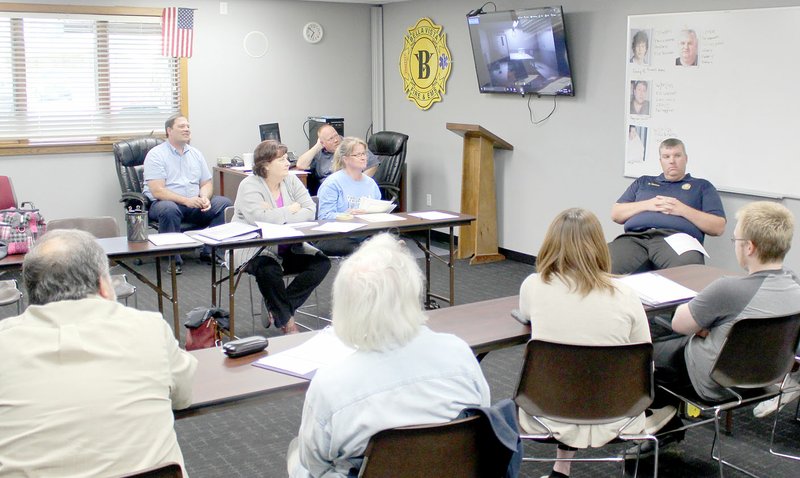The last leg of the Citizen Police Academy presented students with a mock scenario, based on a real case, to investigate.
The students were given roles, including dispatcher, patrol officer, administrator and detective, and used what they learned throughout the academy to carry out those roles.
Incoming Police Chief James Graves spoke with participants before the exercise because he will be unable to attend the graduation.
"We're coming toward the end here," he said of the spring academy, "I hope you've enjoyed it."
He was pleased to see the department had a citizens academy when he joined it, he said, and to see how many people attended. He would be glad to hear feedback, he said.
Community-building exercises like this, he said, are a good way for the department to keep in touch with the people it serves and build positive relationships.
Capt. Tim Cook said that this is the point where, after seeing different facets of law enforcement, academy participants can see how they all come together.
"This is where we actually get to have some fun," he said.
In the exercise, officers discovered a Jeep parked at a church. Later on, the Jeep was gone and the church had been broken into.
Participants then found the Jeep's owner, who lets several people drive it, and had to interview nearly everyone who was at the vehicle owner's birthday party.
The party witnesses, played by officers, gave conflicting accounts, had little recollection of the night, barely cooperated and could rarely remember when something happened.
Lt. Ryan Harmon, playing an individual named Leon who claimed to go on a beer run, gave no shortage of snarky responses.
"You're the cop, you figure it out," he told the mock-detectives.
While participants designated as dispatchers gathered and distributed information, patrol officers searched scenes, administrators provided direction and detectives asked questions, the entire body of participants seemed to exhaust their pool of information sources and found nothing conclusive.
Cook said this was exactly like the real case. It was only solved, he said, when a blood sample from a broken window came back two years later and placed one of the interviewees at the scene.
"Sometimes you get so far and think that's it," he said.
Evidence, he said, may not be readily available all the time.
Witnesses that seemed uncooperative, he said, were based on individuals who were rarely sober and really didn't know much of anything about what's going on.
In this case, all that was stolen was an unknown amount of currency and some candy bars, he said.
"The question most people ask is 'why?' You don't often get that answer," he said.
Academy participant and Bella Vista City Hall office assistant Vicki Hare said this exercise, while frustrating, helped give her some perspective.
"You understand now just how hard it is to get information out of people," she said.
General News on 05/31/2017
